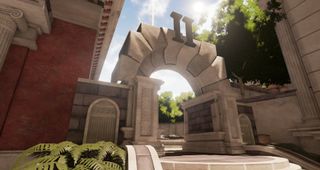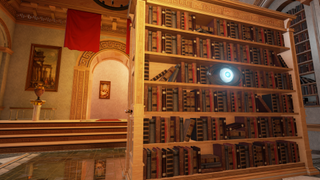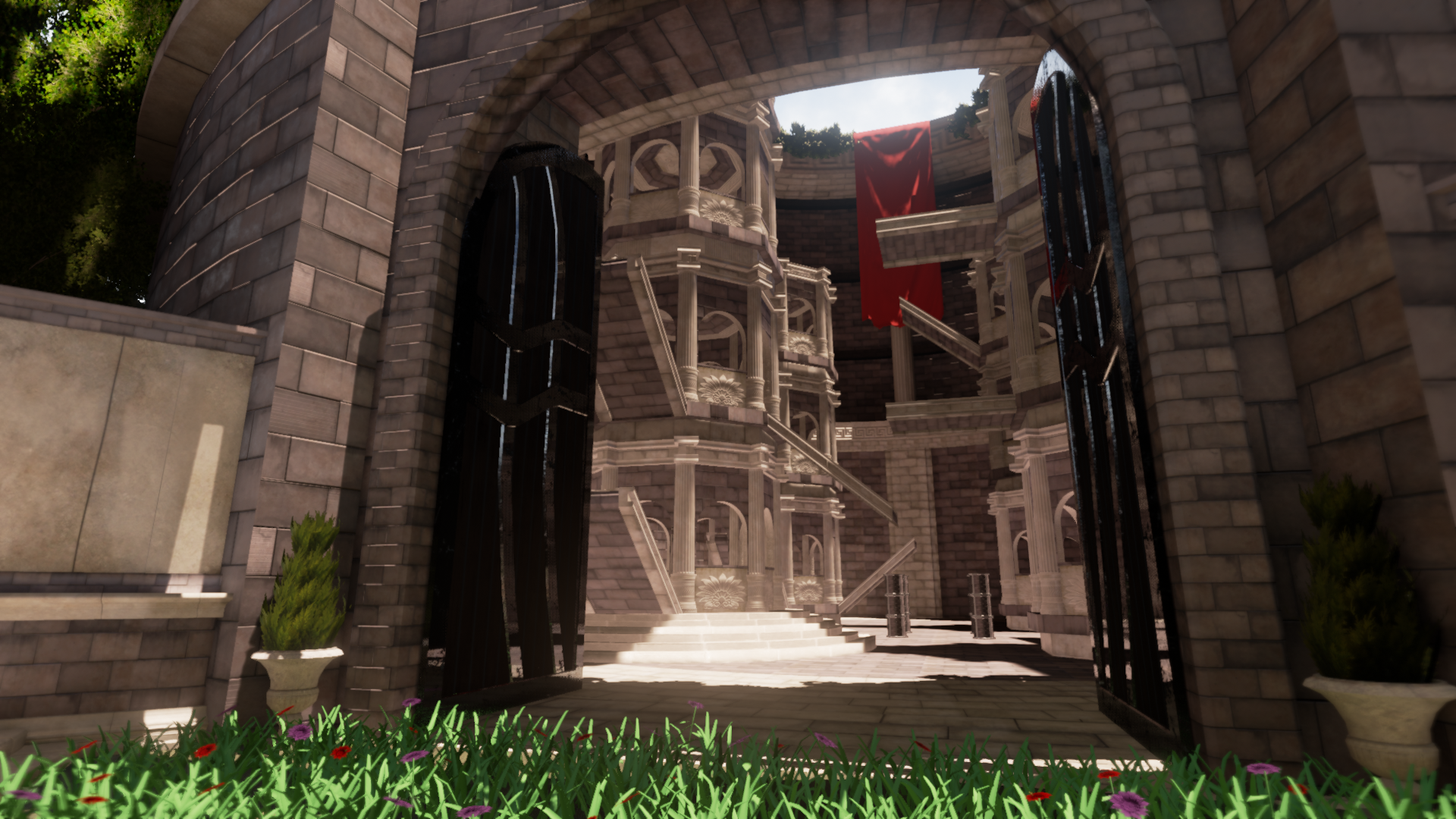Our Verdict
A solid, if thin puzzle game, with not quite as much to say as it thinks it has.
PC Gamer's got your back
What is it: A mix of puzzle-solving and philosophy, wrapped in Unreal powered prettiness. It’s a game of perception, of exploring the self, and the mysteries of reality. Sometimes there are levers to pull.
Influenced by: Portal
Reviewed On: i7, GeForce 970, 4GB RAM
Alternatively: The Talos Principle
DRM: Steam
Price: £16 / $20
Release: Out now
Publisher: Deco Digital
Developer: Bevel Studios
Link: Official site
Multiplayer: None
Socrates, Descartes, Marx… what a bunch of chumps. If only they’d known that the proper way to discuss philosophy wasn’t arguing over the nature of forms or building metaphors, but recording a couple of hours worth of voiceover and slapping it on top of some pretty puzzle chambers. The Allegory of the Cave? Bah! Call us when it’s in the Unreal engine.
It’s an approach that can work, as in The Talos Principle, or not, as with most games that have tried it that are not The Talos Principle. Pneuma doesn’t shift the balance much, serving up considerably more gravy than meat in its couple-of-hours running time. It’s the tale of an arrogant, mysterious entity that awakens in a new world and decides that since it all revolves around him, he must be its creator god. Probably. Maybe. Whatever that actually means. “Can I create rocks I cannot lift?” he ponders. “Clearly I can create doors I cannot open!”
What starts out amusing narration soon loses much of its charm though. There's far too much of it and the tone never really changes. Omnipresent narration can be great when it’s funny, as in The Stanley Parable, but here it’s just mildly amiable babble convinced that it’s more profound than it actually is—a problem that extends to the ending, with a message that will probably make you think, but not likely much more than “is that it?”

Where Pneuma does score though is in its setting. A gorgeous series of puzzle rooms host some stunningly pretty early set-pieces, set in a Greco-Roman palace of golds and greens and marble as far as the eyes can see. Speaking of eyes, it also has a clever central gimmick. While there are levers and buttons, most of the puzzles revolve around perception and what you choose to look at. If you can see an eye on a pole it might open a door. Or, it might only open it if you look away and keep your back to it. At another point, a puzzle sets two terminals according to the other's pattern of lights, but changes the pattern every time you look away. It’s an unusual experience, staring at your feet and hobbling around to where you need to get without looking up to actually see the puzzle.
For the most part, these work well. They’re mostly very easy—even the slightly-harder bonus puzzles—but there are enough clever "aha!" moments to give them something extra. Pneuma also makes it a good virtual reality game, with support for the Oculus DK2 built in (though was finicky on mine). Frustrations are rare. The only real tooh-grinding moment involved a corridor where you have to flip over a number of tiles on the floor to make them match. The catch is that they flip when you lose sight of them. The camera’s field of view is pretty wide, and the slightest mouse slip completely scrambles your hard work. This puzzle should be shot into space at the earliest opportunity.

Pneuma's puzzles don’t tend to build on each other much. They offer a refreshing stream of new ideas but no real sense that you’re improving, or piecing together any grander whole. Pneuma will throw out a basic puzzle, as if introducing a new concept, only to immediately move onto as if the concept's already been milked to death. Even the more intimidating challenges soon reveal themselves to be mechanically pretty simple, if occasionally time-consuming.
The narration does its best to pretend that there’s some deeper element to all this, but there really isn’t—they’re obstacles, and while there are lines like “What good is a challenge? Does the creator wish to teach or simply entertain?”, the one that kept springing back to mind was “As a god, the rules of the universe are mine to rewrite. Though they’re rather conventional at the moment.” He’s not wrong. The basic concepts are novel and clever, but the puzzle room structure is somewhat tired now, and the reliance on the levers and buttons among the eyeballs suggests that the central observation idea didn't yield as much flexibility as hoped.
Pneuma certainly isn’t a bad game, but nor is it much more substantial than a leaf being caught on the wind. Its two hours race by, and its god is pleasant enough company despite generally sounding like a first year philosophy student down the pub. Once finished though, there’s oddly little to look back on and remember but a few clever mechanical ideas.
A solid, if thin puzzle game, with not quite as much to say as it thinks it has.

Cruel is a frantic run-and-gun shooter where you boot cultists out of windows in a cursed apartment block that wants you dead

Valve's Steam page currently lists a second mystery game alongside Deadlock, sending Half-Life 3 theorists into another frenzy of speculation

CD Projekt Red boss says 'around 100' Witcher 3 designers still work at the company, while the Witcher 4's story director is 'the same person since Witcher 1'
